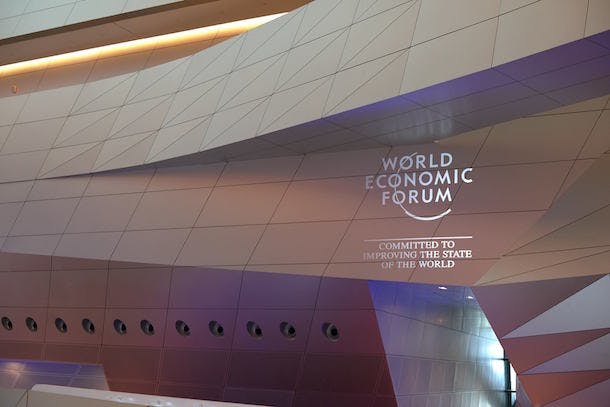
The World Economic Forum – which brought together leaders from business, government, civil society, and the United Nations – just wrapped up, but the dialogue on pressing global issues will continue in the weeks and months ahead.
The good news is that many of the discussions focused on how we can advance progress on the Sustainable Development Goals, the world’s shared agenda to end poverty, promote opportunity for all, and tackle environmental and climate challenges.
These conversations are critical because we’re not going to solve climate change, expand prosperity, and address our biggest crises, like responding to humanitarian emergencies, unless the private sector – and all sectors – are at the table and working together.
While there were many interesting ideas, here are six reports that drove many of the discussions at the forum and will continue to help us think about how we build a world where no one is left behind.
1. Oxfam Report on Rising Global Inequality
Right before the opening of the World Economic Forum, Oxfam released its annual report on global inequality, and the news was sobering: Inequality continues to rise and in 2015, 62 individuals had the same wealth as 3.6 billion people at the bottom half of the income scale. In short: To make progress, we have to level the playing field so opportunity belongs to everyone, not just a few people.
2. Accenture Strategy Report on Corporate Disruptors Leading on the Global Goals
During the forum, Accenture Strategy launched a report in collaboration with the World Economic Forum’s Young Global Leaders making the business case for action on the Sustainable Development Goals and showcasing how “corporate disruptors” are already leading on this agenda. This report highlights how the private sector is delivering value by aligning with the global goals, which is good for business and good for the world.
3. The Global Risks Report Highlights Climate Change
The World Economic Forum released its annual survey of almost 750 experts and their top concern was climate change and its impacts, noting the “sense that climate change–related risks have moved from hypothetical to certain because insufficient action has been undertaken to address them.” This is yet another urgent call-to-action that we must collectively deliver on the promise of the climate agreement reached in Paris last year.
4. UN Women Report on Gender Parity in Companies
During the forum, UN Women launched its inaugural HeForShe Parity Report, in which 10 leading companies released their workforce figures on gender diversity – a pivotal disclosure that helps us examine where we are and where we need to go to make sure women have the same opportunities in the workplace as men. In the 21st century, it’s time to make equality a reality, and we need everyone from CEOs to thought leaders embracing this cause.
5. 2016 Edelman Trust Barometer on Trust in Institutions
Edelman’s annual survey looks at trust in government, business, non-governmental organizations, and the media to “do what is right.” The survey found that while trust among an informed, engaged public is at its highest in 16 years, trust among the mass population has hardly budged since the last global recession. It’s clear that we have work to do to rebuild trust in our institutions – trust that is vital to healthy societies that empower their citizens.
6. ODI Report on Engaging the Private Sector in Water, Sanitation, and Hygiene
Throughout the World Economic Forum, the focus was on how the private sector can not only engage, but lead on solving global challenges. A report from the Overseas Development Institute, which was commissioned by the UN Foundation and UNICEF, provides ideas. The report – a response to a call-to-action from the UN Deputy Secretary-General – specifically looked at how and why businesses can help meet our water, sanitation, and hygiene goals.
These reports cover a range of issues, but together they send a clear message: Now is the time to step up our efforts to solve global challenges. It’s going to take new ideas, new partners, and new ways of working together to realize our sustainable development agenda. By taking a hard look at where we need to do better and how we can do better, we can make progress for people and the planet.



 View All Blog Posts
View All Blog Posts